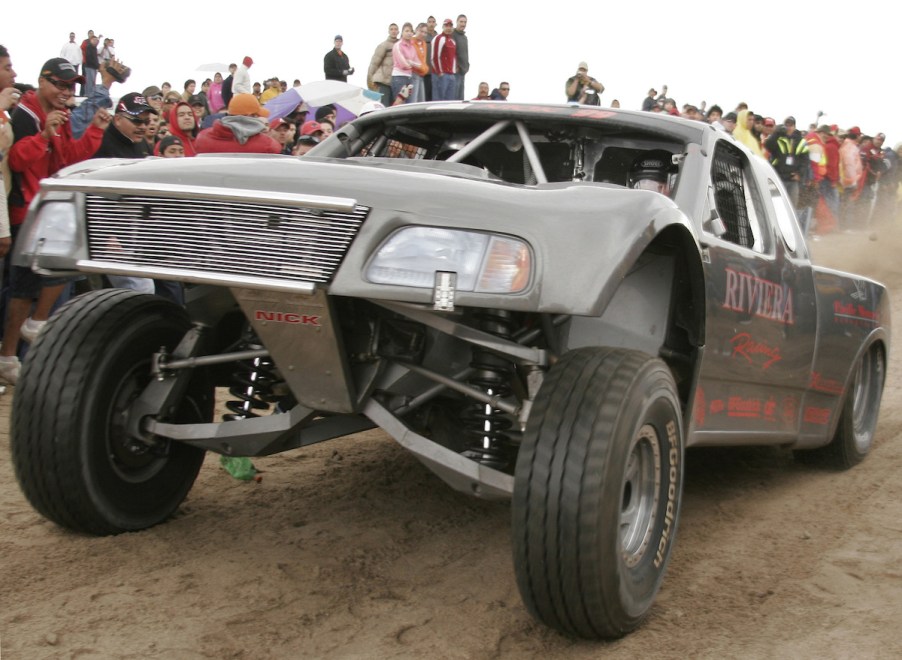
6 Dangers of Modifying Your Ride Into a Squatted Truck
The “Carolina squat” has gone from a trend to a full-blown phenomenon. But what is it? It’s a suspension modification tilting the vehicle’s front end upward and the rear downward. This look has become popular across many states, with owners wanting to add a unique visual component to their rides. However, squatted trucks pose risks. Let’s take a closer look at six potential dangers of squatting your truck or SUV.
1. It makes towing unsafe or even impossible

Suppose you have modified your vehicle for the Carolina squat. In that case, you’ll find it incredibly difficult (and potentially impossible) to tow anything, even with a hitch or trailer. That’s because a squatted truck sits low, making towing unsafe.
2. If the Carolina squat is extreme, the headlights are useless
If you want your vehicle to sit super-low in a squatted position, be aware that your headlights will almost certainly point skyward instead of straight ahead or toward the road. That means your vehicle won’t provide adequate lighting for nighttime driving or bad weather conditions when visibility is low.
3. Squatted trucks have poor visibility
If you squat your vehicle enough where its headlights tilt upward, your view won’t point forward either. “This might result in traffic accidents,” Way.com states. “In addition, the higher the truck’s front, the more difficult it is for the driver to see ahead. This consequently increases the odds of a crash.”
4. Squatting wears the suspension faster
The Caroline squat strains the truck’s suspension further, leading to uneven tire wear and squeaky shocks. That’s because they’re overused from having such low clearance.
5. It negatively affects the braking system
As with the suspension, squatted trucks also have decreased brake pad and rotor performance, ultimately causing brake fade if left unchecked for long periods. In addition, vehicle braking systems aren’t designed for the increased friction generated at higher speeds.
6. It adds drag, hurting fuel efficiency
Vehicles modified with the Carolina squat become less aerodynamic, causing them to consume more fuel than usual. Higher engine wear equals lower fuel efficiency.
Should I modify my ride into a squatted truck or SUV?
Probably not. Squatting vehicles might be visually appealing, but this modification comes with risks. Drivers should think twice before making these changes because they might endanger themselves and others. Plus, extreme Carolina squat modifications are illegal in some states.
For instance, “recently, North Carolina Governor Roy Cooper signed a bill prohibiting the popular modification commonly referred to as a Carolina squat,” Steinberg Law Firm explains.
The ban on Carolina squat trucks also extends to Virginia.
If you’re interested in custom modifications for your truck, there are plenty of other accessories you can consider. They include specialty bumpers, running boards, and tires.



